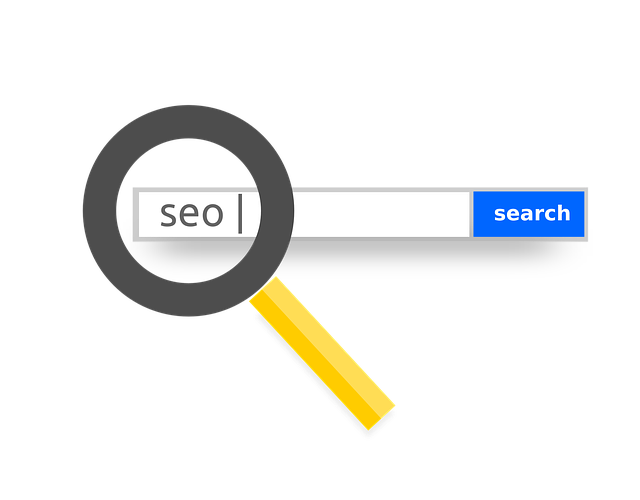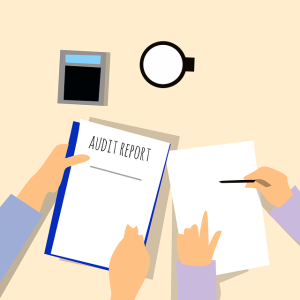Comprehensive SEO audits are essential tools for websites aiming to enhance their online presence and performance. These in-depth assessments analyze various aspects of a site's SEO, from technical functionalities to content strategies, providing valuable insights. By evaluating elements like site structure, content quality, keyword optimization, and user experience, audits help identify weaknesses and areas for improvement. This data-driven approach enables website owners to make informed decisions, optimize content, align with industry standards, and ultimately increase organic reach, driving more targeted traffic and conversions in a competitive digital landscape.
In today’s digital era, a website’s visibility is pivotal for success. Comprehensive SEO Audits play a crucial role in unlocking online potential. This article guides you through the essential components of such audits, from understanding the importance to delving into technical issues, on-page optimization, content analysis, keyword research, link building assessment, performance metrics review, and competitive analysis. By the end, you’ll have actionable recommendations to enhance your website’s search engine ranking.
Understanding the Importance of SEO Audits

Comprehensive SEO audits are an essential tool for any website aiming to excel in online visibility and performance. These in-depth evaluations go beyond surface-level analysis, delving into the intricate aspects of a site’s search engine optimization (SEO). By meticulously examining various factors, from technical functionalities to content strategies, audits provide valuable insights that can drive significant improvements.
Regular SEO audits allow website owners and developers to identify areas of strength and weakness, ensuring their digital presence aligns with the latest industry standards and algorithm updates. This proactive approach enables them to make data-driven decisions, optimize for relevant keywords, enhance user experience, and ultimately increase organic reach.
Key Components of a Comprehensive SEO Audit

A comprehensive SEO audit is an in-depth analysis that evaluates every facet of a website’s online visibility and performance. It goes beyond surface-level checks, delving into technical, on-page, and off-page optimization elements to uncover areas for improvement. This process involves scrutinizing key components such as site structure, content quality, keyword usage, backlink profiles, mobile responsiveness, and page speed – all of which are vital for search engine rankings and user experience.
By meticulously assessing these aspects, a comprehensive SEO audit provides an actionable roadmap for enhancing online presence. It identifies technical issues that hinder crawling and indexing, reveals content gaps that limit organic reach, and highlights strategic opportunities to build high-quality backlinks. Ultimately, this data-driven approach equips website owners with the insights needed to make informed decisions, optimize content effectively, and ultimately drive traffic and conversions.
Identifying Technical SEO Issues

Comprehensive SEO audits are essential tools for identifying technical SEO issues that may hinder a website’s performance. These audits meticulously scrutinize various aspects of a site, from site structure and crawlability to indexing and server response times. By unearthing such problems as broken links, duplicate content, or mobile usability issues, they provide a clear roadmap for improvement.
During the audit process, SEO experts analyze crucial elements like meta tags, headings, and image optimization, ensuring they align with best practices. They also check for any technical errors that could prevent search engines from effectively crawling and understanding the website’s content. This holistic approach facilitates targeted adjustments, ultimately enhancing the site’s visibility and user experience in the competitive digital landscape.
On-Page Optimization Evaluation

Comprehensive SEO audits are essential for evaluating a website’s on-page optimization strategies. These audits meticulously scrutinize various elements that contribute to a site’s search engine visibility and user experience. By delving into technical aspects, content quality, keyword usage, meta tags, and internal linking structures, professionals can identify areas of improvement. Such evaluations play a pivotal role in enhancing the overall SEO performance and ensuring the website ranks higher on search engine result pages (SERPs).
During an on-page optimization evaluation, several key metrics are considered. This includes analyzing title tags to ensure they are descriptive, relevant, and incorporate targeted keywords effectively. Meta descriptions should be compelling and accurately reflect the content below, encouraging clicks from users. Furthermore, audit teams assess the quality and relevance of content, checking for keyword density and ensuring it aligns with user intent. Internal linking structures are also evaluated to guarantee a logical navigation experience that benefits both search engine crawlers and visitors alike.
Content Analysis and Keyword Research

Comprehensive SEO audits begin with a meticulous content analysis. This involves scrutinizing the quality, relevance, and optimization of every piece of content on a website. It’s not just about checking for keyword usage; it’s about understanding user intent behind each page and ensuring the content aligns with search engine guidelines. Well-crafted content should offer value to visitors by addressing their queries comprehensively and providing a seamless navigation experience.
Keyword research is another crucial component of any effective SEO strategy. It involves identifying relevant keywords and phrases that potential customers are using to search for products or services similar to those offered by the website. Tools like Google Keyword Planner, SEMrush, and Ahrefs can help uncover valuable insights into search volume, competition, and keyword intent. This data enables optimizers to strategically place keywords in meta tags, headings, and throughout content, enhancing visibility in search engine results pages (SERPs).
Link Building Assessment

Comprehensive SEO audits often reveal that link building is a critical aspect of a website’s overall search engine optimization (SEO) strategy. A thorough assessment of this area can provide valuable insights into the quality and quantity of backlinks pointing to your site, which significantly influences its ranking potential. By analyzing both internal and external links, you can identify high-quality sources and address any issues like broken links or spammy references that may be hindering performance.
Effective link building involves a mix of acquiring backlinks from reputable, relevant websites and creating valuable content that naturally attracts them. SEO professionals should examine the anchor text diversity, the authority of referring domains, and the overall link profile to ensure it aligns with search engine guidelines. This process not only enhances the site’s credibility but also improves its visibility in organic search results, driving more targeted traffic.
Performance Metrics and Analytics Review

Comprehensive SEO audits provide a deep dive into a website’s performance, going beyond what surface-level analysis might reveal. These audits meticulously scrutinize various metrics to offer an insightful review that’s crucial for optimizing digital presence. Key performance indicators (KPIs) such as bounce rate, time on site, and conversion rates are closely examined, shedding light on user behavior patterns.
Analytics plays a pivotal role in this process by tracking and interpreting data from visitors’ interactions with the website. By leveraging tools like Google Analytics, professionals can uncover valuable insights into traffic sources, popular content, and areas that may require improvement. This analytical approach enables informed decisions, ensuring the website aligns with current search engine algorithms and user expectations for a successful online presence.
Competitive Analysis Integration

A key component of any effective website SEO strategy involves integrating a competitive analysis within your comprehensive SEO audits. By examining what your competitors are doing well in terms of on-page optimization, keyword targeting, and backlink profiles, you gain valuable insights into the current market landscape. This analysis allows for a more informed approach to refining your own website’s content and structure.
Understanding not only where your competitors excel but also their weaknesses helps identify opportunities for improvement. It encourages a strategic focus on outperforming them in search engine rankings while ensuring your website provides an exceptional user experience that keeps visitors engaged. Incorporating this competitive analysis aspect into your regular SEO audits ensures your digital presence remains agile, dynamic, and optimized to capture the attention of your target audience.
Actionable Recommendations and Implementation Strategies

Conducting a comprehensive SEO audit is the first step towards enhancing your website’s visibility and performance. This process involves a detailed analysis of various technical, on-page, and off-page factors that influence search engine rankings. By identifying areas for improvement, you can make data-driven decisions to optimize your site effectively.
Actionable recommendations should be tailored to address specific issues uncovered during the audit. For instance, implementing structured data markup for better search engine understanding, optimizing meta titles and descriptions for relevant keywords, or building high-quality backlinks to enhance domain authority. Each strategy should have a clear implementation plan with timelines, assigning responsibilities, and setting measurable goals to ensure successful execution and continuous improvement in your website’s SEO performance.
